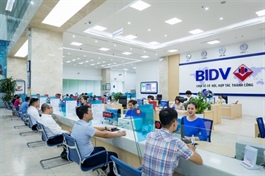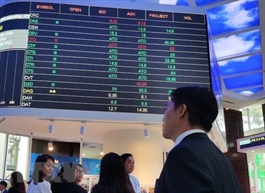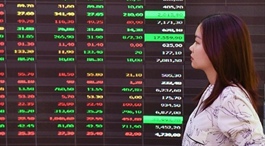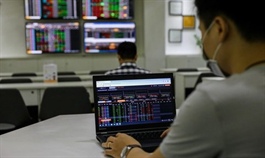Vietnam closer to emerging market status
Vietnam closer to emerging market status
Vietnam’s decade-long quest to transition from a frontier to an emerging securities market underscores the pressing need for technological, regulatory, and risk management reforms to foster a robust and investor-centric ecosystem.

Speaking at last week’s seminar on upgrading Vietnamese stock market and transparency of listed companies, Nguyen Son, chairman of Vietnam Securities Depository and Clearing Corporation highlighted that while the country has made strides in annual reporting practices and other standards, there remains a need for time and an appropriate roadmap to fully realise these ambitions.
Out of the 12-13 assessment criteria considered essential for an upgrade from a frontier to an emerging market status, several are yet to be addressed. Should the upgrade materialise, Vietnam stands to draw an inflow of international capital estimated around $7.2 billion.
“The question is whether the Vietnamese securities market is truly prepared for an upgrade. If upgraded prematurely and unable to sustain its emerging market status, the subsequent downgrading could have even more significant repercussions than a methodical progression,” Son said.
From a capital perspective, he also pointed out that Vietnam currently approached its exchange rate with a one-way capital account liberalisation, unlike the bi-directional norm seen in many other countries. This means that while foreign capital inflows are standard, the withdrawal of such funds is not as straightforward as in other markets.
Instead, Vietnam relies on the foreign exchange status of its commercial banks to facilitate investors in purchasing foreign currency for repatriation. “This mechanism eliminates the risk of sudden, massive capital withdrawals experienced in countries like Thailand in the past,” Son added.
Another pressing issue on the path to an upgrade is the pre-funding of transactions. In the present state, foreign investors are required to transfer all funds to Vietnam before placing a securities purchase order. Market experts believe this poses inconvenience, and potentially risk to investors.
According to Son, the prevailing standard and practice is a Central Counterparty (CCP) clearing model for securities transactions. While the underlying market (shares and fund certificates) uses a multilateral netting model, derivatives markets settle through a CCP, and government and corporate bonds are settled instantly in full.
The envisioned payment system built on a new platform would do away with the need for pre-funding and introduce other risk management measures like forced buy-ins and sell-outs, and address any shortfall in cash or securities. However, this transition awaits the development and integration of newer technological platforms and certain regulatory constraints.
“If we do not implement the CCP model and continue with the current multilateral approach, can we delegate the responsibility of holding 100 per cent collateral in cash or securities to banks or securities firms on behalf of investors? I believe it’s feasible. But we need to assess the ethical risks of securities firms potentially misusing this, leading to market disruptions,” Son said.
According to Phan Quoc Huynh, deputy chairman of the Vietnam Securities Business Association and chairman of SBS Securities, the exchange between either foreign or domestic investors occurs directly with securities companies.
“Viewing from a transactional and economic perspective, if an investor or a securities company incurs a loss, they must shoulder their responsibilities individually.” Huynh said.
From a business entity’s viewpoint, Tran Minh Tuan, deputy chairman of Smart Invest Securities, mentions that the Law on Securities does not currently regulate pre-funding.
“However, several securities companies have offered it to investors, resulting in penalties from the SSC. Yet, it does not prohibit securities companies, but only penalises post-occurrence. This situation mirrors 2010 when the Law on Margins for collateral lending hadn’t been introduced, and securities firms lent under cooperative investment contracts, inherently associated with risks,” he added.
Dr. Can Van Luc, chief economist at BIDV, said that there is no need for collateral regulations, but risk prevention measures are crucial. Global surveys reveal that in cases without collateral, only about 2 per cent of investors default, resulting in approximately $3 billion in global losses annually. Based on this research, Luc suggested three risk prevention measures. “Firstly, Vietnam needs to decisively upgrade its transactional IT system. Secondly, stricter control over investor behaviours should be established, with penalties ranging $1,000-5,000. Thirdly, increasing the authority of securities companies in risk assessment is vital,” he said.


























